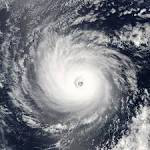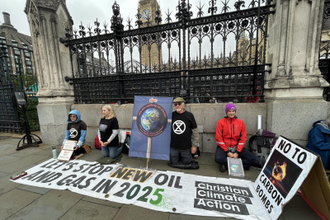Viewpoint: Please don't call Haiti's Hurricane destruction a 'natural disaster'

Have at least 800 people killed in Haiti as Hurricane Matthew swept through the impoverished Caribbean island been victims of a natural disaster? Perusing much of the media, you would think so. And our development agencies are focusing on humanitarian responses, seeking funds for water purification kits, emergency food and construction materials for the estimated 350,000 people affected.Look at the flattened town of Jeremie in West Haiti. I wonder if the community could have done anything to save themselves except move out of the way of the 145 mile-per-hour winds - but you need resources to do that.
Haiti's population has been born into the poorest country in the Western hemisphere. In the rural areas environmental degradation has destroyed the resource base and left them even more vulnerable to the elements. Less than three percent of the original forest cover remains. Even before Hurricane Matthew struck, everyone knew there would be a massive loss of life in Haiti and began planning emergency aid.
However, this time, can we truly learn from this disaster and look honestly at its causes?
Firstly, the increasing severity of hurricanes has a proven link to climate change, particularly the warming of the oceans. Matthew was the first Category 4 Haiti landfall since Hurricane Cleo in 1964, but Haiti will see more devastating storms in the near future. Secondly, Haiti, home to 10 million people, is facing some of the world's worst challenges when it comes to preparing for climate change impacts, including high levels of poverty, environmental degradation, a poor economy and a crumbling infrastructure. It's a double threat.
Have economists said anything on this topic? Plenty.
In 2006 the Stern report, compiled by Sir Nicholas Stern for the UK government delivered a staggering recommendation - that the world has to act now on climate change or face devastating consequences. The former chief economist of the World Bank said that the time is now to move on from arguing about statistics to taking drastic action at an international level. He presented a convincing argument for human society to change its fossil fuel addiction or there will be more examples of extreme weather patterns. Global floods could displace 100m people and drought create hundreds of millions of "climate refugees". One especially sobering study from the Massachusetts Institute of Technology has found that hurricane wind speeds have increased about 50% in the past 50 years.
In the last few days, Richard Hewston, principal environmental analyst for Verisk Maplecroft, a risk management firm in England, told International Business Times that "Haiti is highly exposed to climate extremes and future changes in climate change". He pointed to island nations in the Atlantic and Pacific facing increasing intensity of hurricanes and worsening humanitarian impacts.
What about the churches?
There have been many church initiatives over the years, but who has been listening? The Otin Taai Declation, issued after the Pacific Churches' Consultation on Climate met in Kiribati in March 2004, called for Christians throughout the world to "act in solidarity with us to reduce the causes of human- induced climate change". The title, pronounced 'osin tai', means sunrise, a symbol of hope in the Kiribati language.
The Columban Missionary Society, linked to its own experience in 16 countries and after listening to the vast majority of the world's climate scientists, noted that Typhoon Haiyan, which hit the Philippines in 2013, was one of the strongest hurricanes ever recorded and part of an increasingly severe weather pattern. Addressing the cry of the Earth as well as the cry of the poor underlies Columban mission. As the oceans warm, there is extra energy in the system. All this is bad news for the Philippine archipelago of islands and other island nations. Typhoon Haiyan flattened vast areas, killed at least 10,000 people and left nine million people struggling to survive without food, shelter or clean drinking water. Of course, the humanitarian aid response is vital, but the political will to address Climate Change must be there too. It is a moral imperative,
particularly looking to the rights of the poor and the rights of generations yet unborn.
Since planetary warming is human-induced - due to human society putting greenhouse gases into the atmosphere - it is untrue to call disasters such as the latest Haiti catastrophe 'natural'. Yeb Sano, a former Philippines lead negotiator at climate conferences, has said: "We must stop calling events like these as natural disasters. It is not natural when science already tells us that global warming will induce more intense storms, and it is not natural when the human species has already profoundly changed the climate".
Pope Francis' encyclical Laudato Si' draws attention to the costs of climate change for the poor, and reminds us that alongside the record numbers of people around the world uprooted by war, there are also countless more forced from their homes by disasters linked to the effects of climate change. He says: "humanity is called to recognise the need for changes of lifestyle, production and consumption, in order to combat this warming or at least the human causes which produce or aggravate it". He calls for more than charity - which is vital for the people of Haiti today - but he also calls for justice and for "ecological conversion".
Let's get that message out to Catholic parishes and schools as they mobilise with the charities to support Haitians through the coming days of homelessness, starvation, thirst and the risk of cholera. And let's support the Week of action on Climate and Energy, which starts today until 16 October.
Links:
Global Catholic Climate Movement - https://catholicclimatemovement.global/
The Climate Coalition - www.theclimatecoalition.org/


















